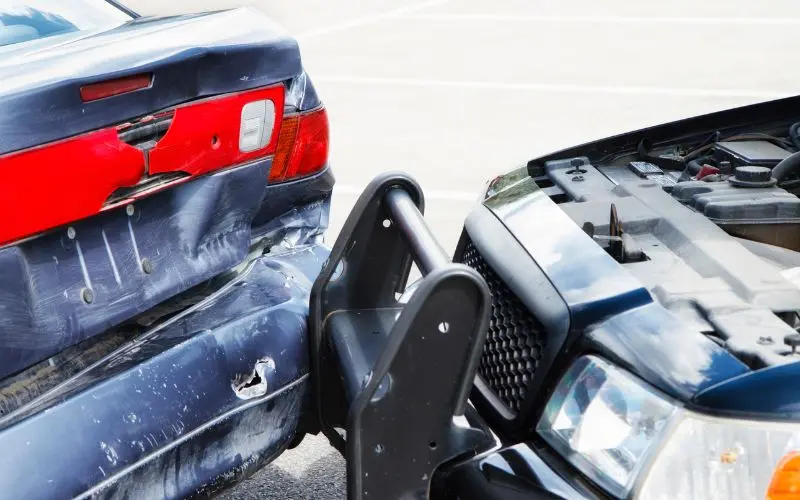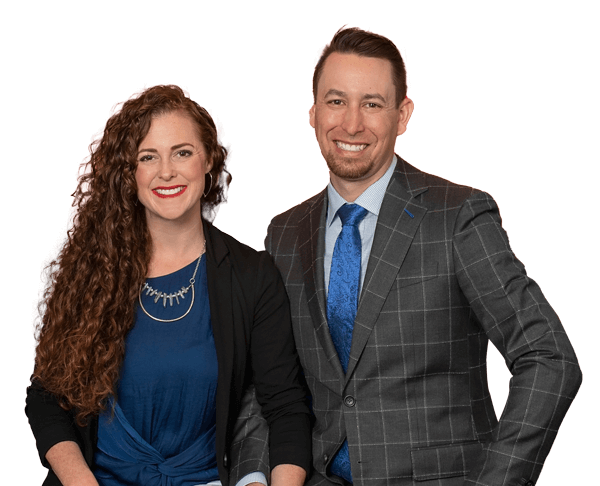What Is the Average Payout for a Rear-End Collision?
Rear-end collisions are one of the most common types of car accidents, often resulting in significant injuries and damages. If you’ve been involved in a rear-end collision, you might be wondering what kind of financial compensation you can expect. At Meyer Injury Lawyers, we are committed to helping victims of rear-end collisions in Boise, Idaho, understand their rights and secure the compensation they deserve. Here’s an overview of what you need to know for a rear-end collision.
What is a Rear-End Collision?

A rear-end collision occurs when one vehicle crashes into the back of another vehicle. These types of accidents are often caused by factors such as distracted driving, tailgating, sudden stops, speeding, adverse weather conditions, mechanical failures, and driving under the influence. Rear-end collisions can result in various injuries, including whiplash, back injuries, head and brain injuries, and chest injuries. Determining liability typically involves assessing whether the trailing driver maintained a safe following distance and was attentive to road conditions.
Who is Liable for a Rear-End Collision in Idaho?
In Idaho, the driver of the trailing vehicle (the one that crashes into the back of another vehicle) is generally presumed to be at fault for a rear-end collision. This is because drivers are expected to maintain a safe following distance and be ready to stop if necessary.
Exceptions to the Presumption of Fault
However, there are exceptions where the lead driver or other factors might contribute to the accident:
- Sudden Stops: If the lead driver makes an abrupt, unexpected stop without reason.
- Mechanical Failures: If the lead vehicle has faulty brake lights or other issues preventing the trailing driver from noticing a stop.
- Reckless Driving: If the lead driver cuts off another vehicle and stops suddenly.
- Road Hazards: If the lead driver stops suddenly to avoid a hazard, and the trailing driver couldn’t react in time.
Comparative Negligence in Idaho
Idaho uses a comparative negligence system, meaning both drivers can share fault. Compensation is adjusted based on each driver's percentage of fault. For instance, if the trailing driver is 70% at fault and the lead driver is 30% at fault, the trailing driver's compensation is reduced by 70%.
What Affects an Average Payout for a Rear-End Collision?
Rear-end collisions are common and can result in a wide range of injuries and damages. If you’ve been involved in a rear-end collision, you might be wondering about the potential compensation you could receive. At Meyer Injury Lawyers, we help victims of rear-end collisions understand what to expect in terms of financial recovery. Here’s a general overview of the average payout for a rear-end collision:
Factors Influencing the Payout
The payout for a rear-end collision varies widely based on several factors:
- Severity of Injuries: More severe injuries typically lead to higher compensation. Minor injuries might result in lower payouts, while severe injuries requiring extensive medical treatment and long-term care can lead to significantly higher settlements.
- Medical Expenses: Compensation includes all medical costs, such as emergency room visits, surgeries, hospital stays, medications, and rehabilitation. Future medical expenses related to the injury are also considered.
- Lost Wages: If your injuries prevent you from working, you can claim compensation for lost wages. This includes both current lost income and potential future earnings if your ability to work is permanently affected.
- Pain and Suffering: This compensates for physical pain and emotional distress caused by the accident. The more severe and long-lasting the pain and suffering, the higher this component of the payout.
- Property Damage: Compensation for repairing or replacing your vehicle and any personal property damaged in the collision.
- Fault and Liability: The determination of fault can affect the payout. If the other driver is clearly at fault, you may receive a higher settlement. If you share some responsibility for the accident, your compensation might be reduced.
How Meyer Injury Lawyers Can Help
At Meyer Injury Lawyers, we are dedicated to helping you secure the compensation you deserve. Here’s how we can assist:
- Case Evaluation: Assessing your case to determine potential compensation.
- Evidence Gathering: Collecting and preserving necessary evidence, such as medical records and accident reports.
- Negotiation: Handling negotiations with insurance companies to secure a fair settlement.
- Litigation: Representing you in court if a fair settlement cannot be reached.
Common Injuries from a Rear-End Accident
Rear-end accidents are common and can cause a variety of injuries, ranging from minor to severe. At Meyer Injury Lawyers, we understand the impact these injuries can have on your life and are here to help you seek the compensation you deserve. Here are some of the most common injuries resulting from rear-end accidents:
Whiplash
- Description: Whiplash occurs when the head is suddenly jolted backward and then forward, causing strain and damage to the neck muscles and ligaments.
- Symptoms: Neck pain and stiffness, headaches, dizziness, and sometimes, blurred vision or ringing in the ears.
Back Injuries
- Description: The impact of a rear-end collision can cause various back injuries, including herniated discs, spinal fractures, and muscle strains.
- Symptoms: Pain in the back, reduced mobility, numbness or tingling in the limbs, and muscle spasms.
Head and Brain Injuries
- Description: Passengers may hit their heads on the steering wheel, dashboard, or headrest, leading to concussions or traumatic brain injuries (TBI).
- Symptoms: Headaches, confusion, memory loss, dizziness, nausea, and in severe cases, loss of consciousness or long-term cognitive impairments.
Facial Injuries
- Description: The face can be injured by airbag deployment, broken glass, or impact with the steering wheel or dashboard.
- Symptoms: Cuts, bruises, fractures, and dental injuries.
Chest Injuries
- Description: The force of the collision can cause chest injuries, especially if the driver or passenger is restrained by a seatbelt.
- Symptoms: Bruised ribs, fractured ribs, and internal injuries such as damage to the lungs or heart.
Seatbelt Injuries
- Description: While seatbelts save lives, they can cause injuries in a high-impact collision.
- Symptoms: Bruising, abrasions, and, in severe cases, internal injuries where the seatbelt restrains the body.
Arm and Wrist Injuries
- Description: Occupants often brace for impact with their arms, leading to injuries.
- Symptoms: Fractures, sprains, and strains in the arms, wrists, and hands.
Leg and Knee Injuries
- Description: The lower extremities can be injured if they hit the dashboard or seat in front of them.
- Symptoms: Bruises, fractures, and ligament injuries in the legs and knees.
Psychological Injuries
- Description: The trauma of a rear-end collision can also result in psychological injuries.
- Symptoms: Anxiety, depression, post-traumatic stress disorder (PTSD), and other emotional distress.
Financial Compensation You May Be Entitled To
At Meyer Injury Lawyers, we understand the financial strain that a car accident can place on victims and their families. If you’ve been injured in a car accident, you may be entitled to various types of financial compensation to help cover your losses and support your recovery. Here are the primary types of compensation you may be entitled to:
Medical Expenses
- Immediate Medical Costs: Compensation for emergency room visits, surgeries, hospital stays, medications, and other treatments directly related to the accident.
- Future Medical Expenses: Coverage for ongoing medical care, rehabilitation, and any future surgeries or treatments required due to your injuries.
- Rehabilitation and Therapy: Costs for physical therapy, occupational therapy, and other necessary rehabilitation services to aid your recovery.
Lost Wages
- Current Lost Income: Compensation for the wages you have lost due to your inability to work while recovering from your injuries.
- Future Lost Earnings: If your injuries result in long-term or permanent disability, you can pursue compensation for the loss of future earning capacity.
- Loss of Benefits: Compensation for the loss of employment benefits, such as health insurance, retirement contributions, and other job-related perks.
Pain and Suffering
- Physical Pain: Compensation for the physical pain and discomfort caused by your injuries.
- Emotional Distress: Damages for the emotional and psychological impact of the accident, including anxiety, depression, and post-traumatic stress disorder (PTSD).
- Loss of Enjoyment of Life: Compensation for the impact of your injuries on your ability to participate in activities you once enjoyed.
Property Damage
- Vehicle Repair or Replacement: Compensation for the cost of repairing or replacing your damaged vehicle.
- Personal Property: Coverage for any personal property that was damaged or destroyed in the accident, such as electronic devices and clothing.
Loss of Consortium
- Spousal Losses: Compensation for the impact of your injuries on your relationship with your spouse, including loss of companionship and support.
- Family Impact: Damages for the effect of your injuries on your ability to maintain relationships with family members, including loss of parental guidance for your children.
Punitive Damages
- Gross Negligence or Malice: In cases where the at-fault party’s actions were particularly egregious or reckless, you may be awarded punitive damages. These are intended to punish the wrongdoer and deter similar behavior in the future.
Wrongful Death Damages
- Funeral and Burial Expenses: Compensation for the costs associated with funeral and burial services if a loved one was killed in the accident.
- Loss of Financial Support: Damages for the loss of income and financial support that the deceased would have provided to their family.
- Loss of Companionship: Compensation for the emotional and relational loss suffered by surviving family members due to the wrongful death of their loved one.
Additional Expenses
- Home Modifications: If your injuries require modifications to your home, such as wheelchair ramps or specialized medical equipment, you can seek compensation for these costs.
- Transportation Costs: Coverage for transportation expenses related to medical appointments and treatments.
- Caregiver Costs: If you require in-home care or assistance due to your injuries, you can pursue compensation for these services
What To Do After a Rear-End Accident
Being involved in a rear-end accident can be stressful and overwhelming. Here are the key steps you should take to protect your health and legal rights:
1. Ensure Safety
- Move to Safety: If possible, move your vehicle to a safe location to prevent further accidents.
- Check for Injuries: Assess yourself and others for injuries. Call 911 if medical attention is needed.
2. Report the Accident
- Call the Police: Report the accident and ensure an official police report is filed.
- Provide Information: Give an accurate account of the incident without admitting fault.
3. Gather Evidence
- Take Photos: Document the scene, vehicle damage, and any visible injuries.
- Collect Information: Obtain contact and insurance details from all drivers involved, as well as contact information for any witnesses.
4. Seek Medical Attention
- Get Checked Out: Even if you feel fine, seek medical attention to identify any hidden injuries.
- Follow-up: Follow your doctor's advice and attend all follow-up appointments.
5. Notify Your Insurance Company
- Report the Accident: Inform your insurance company and provide necessary details.
- Avoid Early Statements: Do not provide recorded statements to insurance companies without consulting a lawyer.
- Seek Legal Advice: Contact an experienced car accident lawyer to discuss your case.
- Protect Your Rights: A personal injury lawyer can help you navigate the legal process, negotiate with insurance companies, and secure fair compensation.
7. Keep Detailed Records
- Document Everything: Keep records of medical treatments, expenses, and any communications related to the accident.
- Track Symptoms: Note any changes in your health or symptoms related to the accident.
Contact Meyer Injury Lawyers for a Free Consultation
If you've been involved in a rear-end accident, don't navigate the aftermath alone. Meyer Injury Lawyers in Boise, Idaho, is here to help you secure the compensation you deserve. Contact us today for a free consultation.


